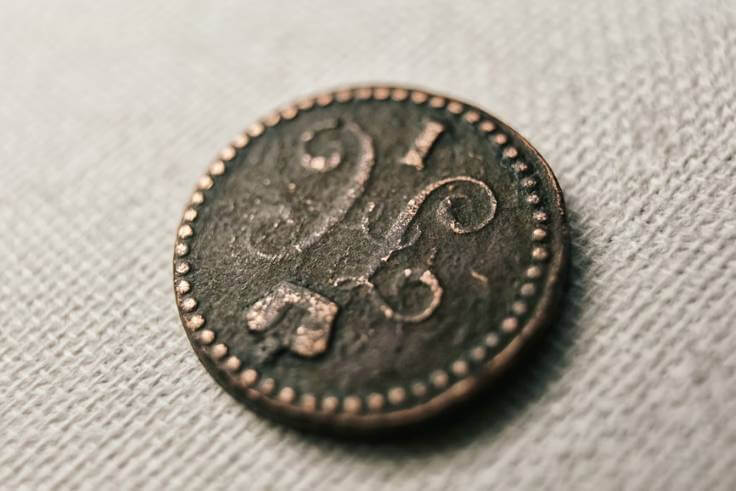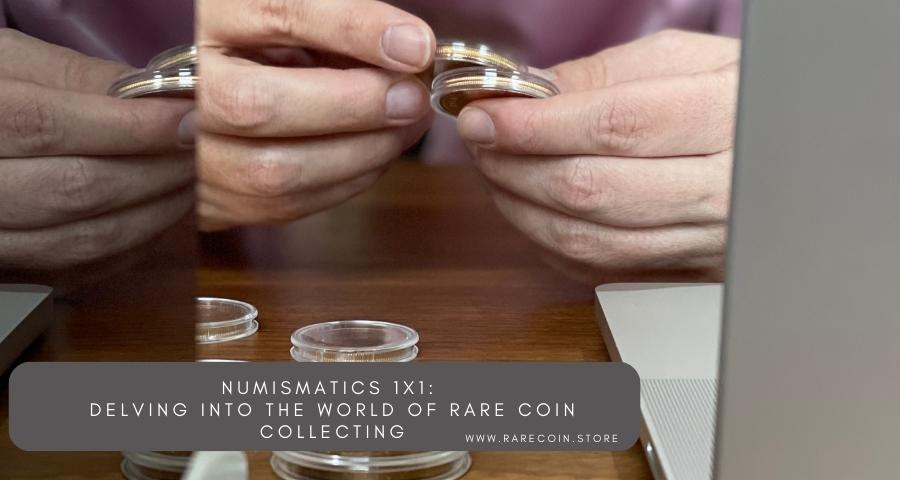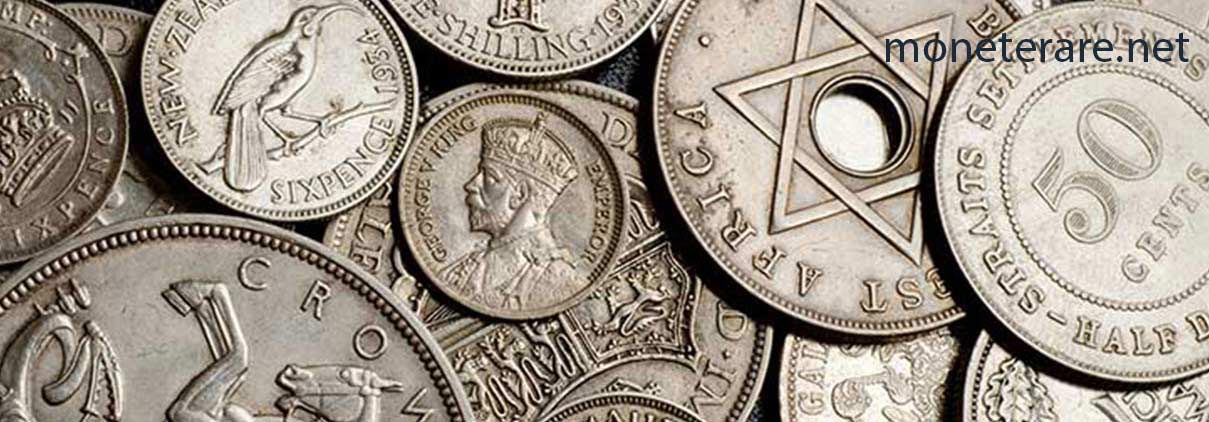Great News To Selecting Coin Society And Banknote Storage
Wiki Article
What Can I Learn About Global And Local Associations For Numismatics Using A Database For Research?
A structured approach is provided to conduct this study. Here's a systematic approach to conduct such research:Database Selection: Choose databases that specialize in numismatic associations, such as the websites of the most prominent numismatic associations such as the American Numismatic Association (ANA) and the International Numismatic Council (INC), or regional associations like the Numismatic Association of Australia (NAA). Academic databases and repositories such as JSTOR offer access to conference proceedings as well as research papers.
Define Research Focus: Specify your research objectives. Are you interested in exploring the past and current activities of global numismatic associations or regional collaborations, conferences, publications, or specific numismatic topics discussed within these organizations? Define your goals in order for your research.
Search Strategy: Use keywords like "numismatic associations", "global numismatics" or "regional numismatic societies," depending on the context. Also, you can add the names of organizations or regions. Advanced search is a way to filter the results according to date, types of documents (such as newsletters of associations or conference papers) and geographical scope.
Get information on the numismatic associations of both regions and globally such as their purpose, history and membership. You can also find out information about publications and activities. Information on the past and upcoming research, workshops, and conferences are accessible. Explore databases that list members, association leadership, and contact details.
Analyze data to comprehend the the role and impact. Examine how these associations help advance knowledge in numismatics, facilitate international collaborations, share information via conferences and publications, and foster international collaborations.
Cross-Referencing: Verify your findings by cross-referencing information across multiple databases and sources. Check out the initiatives and activities of different associations to get an overview of international and local trends in the field of numismatics.
Documentation - Document your research findings, citing the sources you have used and noting any methodologies that you used. Keep track of details like the databases you searched on, the search words employed, as well as the relevance of each source was to your study.
Keep up-to-date: Numismatics organizations continue to evolve. This includes the release of new publications, collaborative projects, and conferences. Keep an eye on the website of your association, databases of scholarly research, and newsletters to stay up-to-date with the latest developments in both regional and global numismatics.
Following these steps will allow you to effectively use databases to research numismatics and how it pertains to both regional and global organizations. This method allows for a thorough study of the global and regional numismatics field's structure, academic activities, and collaboration efforts. Check out the most popular banknote printing advice for more advice including banknote storage, coin minting, shekel, ringgit, coin artist, nickel, banknote marketplace, coin die, coin storage, antique coins and more.

How Can I Look Up A Database To Find Numismatics In Relation To Refineries?
Here's a structured approach to conducting this type of research: Database Selection: Select databases that focus on minting processes, precious metals and the history and technology of refineries. A method that is structured is provided to help you conduct this kind of study. Databases from major refineries, such as Johnson Matthey or Heraeus; or mints run by government, such as the United States Mint, the Royal Canadian Mint, are an example.
Define Research Focus: Specify your research objectives. You might be interested in knowing more about the history of refineries and their processes, technological advances, production of coins and gold bullion or in high-quality standards and certifications of refineries for precious metals. Make sure you know what you want to achieve so that you narrow your search.
Search Strategy: Use keywords such as "precious Metals Refineries", "minting Processes", "bullion Production" and include refinery names, geographical areas, or historical dates if relevant. Advanced search options let you to filter according to date, document type such as technical reports or production statistics, or refinement methods.
Data Collection: Access data on refineries, including their dates of inauguration, types of precious metals (gold silver platinum) refinery techniques (such chemical refining, or electrolytic refining) and any significant recent developments or breakthroughs.
Analyze: Analyze the the role of refineries in Numismatics. Analyze how refineries provide precious metals that are used to make bullion and coins, manage quality during the process of minting, and contribute towards standardizing coinage metals. Examine the techniques and methods employed by various refineries or mints.
Cross-References: Check what you've discovered by cross-referencing data from different databases and sources. This ensures accuracy and completeness of your study. It also gives an extensive picture of refineries' role in numismatics.
Documentation: Record your findings in a systematic manner by citing sources and noting methodologies used. Take note of the information in the databases you used as well as the search terms that you used, and how each source connects to your research.
Stay informed: Technology for refining and standards change over time. Keep up-to-date by reading the latest news from refinery publications, industry publications, reports and mint publications to learn about the latest developments in refining techniques and their impact on the numismatics industry.
These steps will enable you to explore numismatics as it relates to refineries. This method allows for a thorough examination of the technological innovations, quality assurance measures and historical contributions that refineries make to the production of bullion and coins all over the world. Read the best this hyperlink about central bank for site info including coin forum, coin production, lira, coin production, currency dealer, denomination, coin engraving, copyright detection, numismatics, penny and more.

How Can I Find Out More About Numismatics To Help Historians And Researchers Using Databases?
Here's a systematic approach to conducting such research:Database Selection: Select databases that are specialized in numismatic research, historical archives and academic journals as well as institutional repositories. Here is a comprehensive procedure for carrying out this kind of research:Database selection: Select databases that specialize in numismatics, historical archives as well as academic journals. JSTOR, Google Scholar numismatic journal (like those published by the American Numismatic Society), or databases of libraries at universities are all examples.
Define Research Focus: Specify your research objectives. Are you interested in the historical context for artifacts found in the numismatic area as well as the methods of study utilized by historians in the field of numismatics specific numismatic topics studied by scholars, or about the research contributions made by researchers to the numismatic community? Find out the answer by defining your goals.
Search Strategy: Make use of keywords like "numismatics,"the study of numismatics "numismatics research," and "historical coins," which include specific historical geographical regions or periods. If possible, include themes or themes related to numismatics or themes that relate to specific historical time periods. Advanced search options let users to filter their search results by the date, the kind of document (such a articles, dissertations or conference papers) or the author's name.
Data collection: Get information about scholarly articles as well as research documents and numismatics related to historical archives. Gather information like the publication's title author, abstract methodology employed as well as the historical context analyzed, and more. Find databases that allow you to access digitized research or numismatic collections.
Analyze and interpret the information in a way that you can understand the methods used by researchers and historians in numismatics studies. Examine how numismatic objects contribute to wider historical narratives. Comparing the research and findings of a variety of researchers on various areas of numismatics.
Cross-Referencing - Check your findings by cross-referencing databases as well as academic journals and institutional repository. This will ensure the accuracy of your research and complete, giving you complete information about research.
Documentation: Record your findings in a systematic manner by citing sources and noting the methodologies employed. Note down the database names, search terms, and the significance of each source to the research issue.
Keep updated: Numismatic studies and scholarly journals continue to evolve. Keep up-to-date by following updates from journals of academic quality, numismatic societies and institutional repositories for the most current research findings and methods in numismatic research.
Follow these steps to use databases efficiently to study the numismatics of historians and other scholars. This approach allows you to examine the methods, historical interpretations, and academic inputs that shape our understanding of numismatics in connection to wider cultural and historical contexts. View the best coin certification examples for site recommendations including money, numismatics, copyright detection, banknote appraisal, coin design, ringgit, krona, coin society, currency forum, currency society and more.
What Can I Do To Find Out More Information About Numismatics Through Online Forums And Communities Using A Numismatics Database?
For conducting such research, follow this method: Database Selection: Select online forums and communities that are specialized in numismatics. These sites permit collectors, enthusiasts and experts to share knowledge as well as discuss the latest trends and display collections. It is a method that can be structured to conduct such research. For example, forums like CoinTalk or Reddit's r/Coins, as well as specific communities for numismatics that are on social media platforms such as Facebook groups, LinkedIn, or Facebook groups, are examples.
Define Research Focus: Specify your research objectives. Are you looking to understand current trends in collecting, or discussing particular kinds of coins or historic periods, seeking guidance on authentication and grading or interacting with experts in specialized areas of numismatics? Make sure you know what your goals are to help aid your research.
Search Strategy: Make use of keywords relevant to the subject that you are interested in, for example "numismatic forum,"" "coin collecting community,"" "online discussion forums on the subject of numismatics" and keywords related to specific topics, (ancient coins or modern ones), or keywords related to your research. Utilize search functionalities on each platform to locate relevant discussions and threads.
Data Collection: Go through discussions, threads or posts and other data in online forums and communities. Find out information about collecting strategies and coin identification techniques, market trends, personal experiences with numismatic discoveries and discussions on historical or cultural aspects of coinage.
Analyse the data in order to understand opinions, expertise and experiences that are shared among members of the online communities. You can determine the authenticity of the community by looking at the contributions of contributors as well as the consensus on specific topics among members.
Cross-Referencing: Confirm your conclusions by comparing information across different forums and communities. Examine the insights of different platforms to gain a greater understanding of trends that are collected as well as market sentiments, and experts in the world of numismatics.
Documentation. Document your findings by regularly citing discussions or threads and contributing authors as needed. Note key trends, insights and the opinions that are shared in the online forums and communities.
Be Engaged: Participate in discussions actively and ask questions, then contribute to the discussion to get insight and make connections amongst the Numismatics. Keep up to date with the most recent threads, announcements and answers.
Following these steps, you will be able to effectively make use of forums and online communities to conduct research in the field of numismatics. This approach lets you draw on the collective wisdom and expertise of a wide collection of experts and collectors, providing valuable insight and perspectives on different aspects of coin identification and appreciation. See the top zlatemince.cz czech precious metals for site advice including coin errors, coin dealer, rial, precious metals, banknote history, banknote catalog, platinum, banknote auction, legal tender, currency forum and more.

How Can I Make Use Of An Online Database For Research Numismatics Specifically In Relation To Industry Trends?
This research has been designed to aid you. This is a method that can be structured for conducting this research. Some examples include market research platforms (like Mintel, IBISWorld) as well as numismatic society publications, industry-specific databases, and businesses news sites.
Define Research Focus: Specify your research objectives. Are you looking to understand the current trends in numismatics market, emerging collecting interests, technological advancements affecting the business, economic factors influencing coin values, or regulatory changes that affect numismatic companies? Define what you are seeking to limit your search.
Search Strategy: Use specific keywords to find relevant information. For example, "numismatic industries trends," "coin market analysis of collectors," "emerging trend in the field of numismatics." It is also possible to include keywords that relate to your topic (ancients and contemporary, papermoney). Advanced search is a way to sort the results according to the date, the sector and the type of publication (reports reports or market analyses).
Data Collection: Find out data on trends in the industry and information on numismatics. You can find information on coin collecting and technology innovations, such as articles about authenticating or cataloguing digitally, expert opinions on market trends and economic analysis.
Analysis: Review your data to discover the most important trends and patterns that impact the numismatic industry. Analyze market dynamics such as trends in collector demographics, shifting collection preferences (historical themes and periods), innovations and technology in numismatics, as well as the global economic impact on the market and prices of coins.
Cross-Reference: Verify the accuracy of your findings by cross-referencing data from different sources, such as market reports or numismatic books, as well as industry analysis. This guarantees accuracy and accuracy in your research, providing complete information on the latest trends in the industry and insight.
Documentation. Document your research findings by citing the sources you consulted and noting the methodologies that were used. Keep track of details like the databases you've used as well as your search terms and the relevance of these to the research questions.
Be aware of trends in numismatics. change as market conditions, collecting styles, and technological advancements. Keep yourself updated by keeping track of developments from market research firms, numismatic publications and reports from industry publications for the latest insights and analyses on numismatic industry trends.
Follow these steps to learn about the latest trends in numismatics and gain valuable insight. This technique lets you gain valuable insights into market dynamics, while also capturing trends, technological advances, and economic influences in the numismatics industry. View the recommended full article for website advice including coin expo, denomination, dinar, coin appraisal, zloty, historical currency, circulated, coin society, banknote show, circulated and more.
